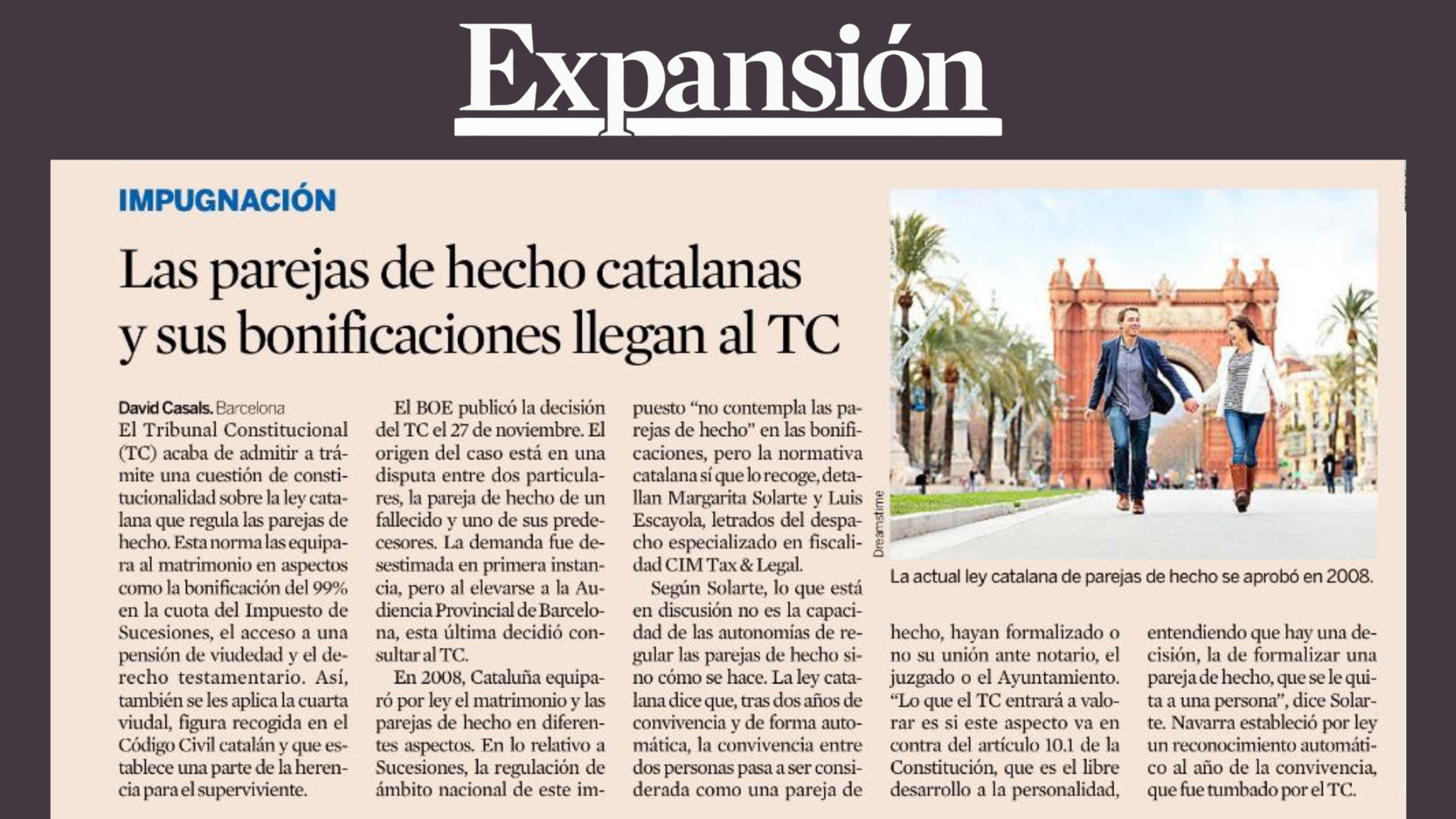
CIM Tax & Legal's analysis on the constitutionality of tax benefits for domestic partnerships in Catalonia, in Expansión
CIM Tax & Legal in the media
Redacción CIM Tax & Legal
In the article published on December 10 in Expansión, journalist David Casals analyzes the recent decision by the Constitutional Court (TC) to admit a question of unconstitutionality regarding the Catalan regulation that equates domestic partnerships with marriage in several civil and tax aspects.
The article also highlights the analysis by the Associated Lawyers of CIM Tax & Legal, Margarita Solarte and Luis Escayola, who provide their perspective on the civil and fiscal implications of this regulation. According to Margarita Solarte, the TC does not question the ability of autonomous communities to regulate domestic partnerships, but rather how they do so. The Catalan law establishes that, after two years of cohabitation, the relationship is automatically considered a domestic partnership, without the need for formalization before a notary, court, or municipality. Margarita explains that what the TC will assess is whether this regulation violates Article 10.1 of the Constitution, which protects the right to freely develop one’s personality, as the individual loses the decision to formalize their stable relationship as a domestic partnership.
Luis Escayola adds that the issue not only tests the limits of regional fiscal legislation but could also set an important precedent for other autonomous communities with similar regulations, as was the case in the precedent in Navarra, which at the time established automatic recognition after one year of cohabitation, but was overturned by the TC.
Currently, domestic partnerships enjoy a series of tax benefits, among which is the 99% discount on the Inheritance and Donations Tax for the surviving domestic partner inheriting from the deceased member, just as with the surviving spouse in a marriage. These tax benefits, which equate domestic partnerships and marriages, could be rendered void if the Court rules the regulation unconstitutional.
Moreover, if the TC concludes that the Catalan regulation of domestic partnerships violates the aforementioned Article 10.1 of the Constitution, it will be interesting to see whether the resolution produces ex-tunc or ex-nunc effects, as happened in the Navarra case. This will determine the extent of the fiscal impact of a potential declaration of unconstitutionality of the Catalan domestic partnership regulation.

At CIM Tax & Legal, we thank Expansión for the opportunity to contribute our expertise on this highly relevant issue, and María Galán for her constant collaboration with our team.
To read the full article, access the Expansión publication through this link.
Contact us for personalized support with your project.
